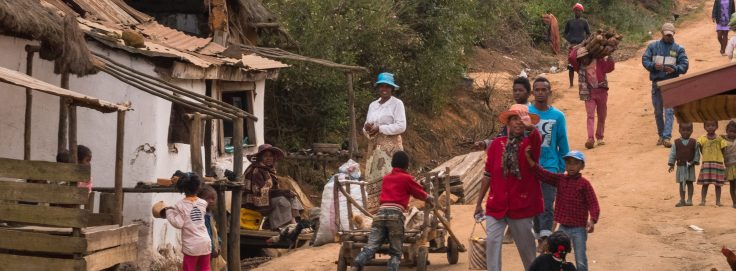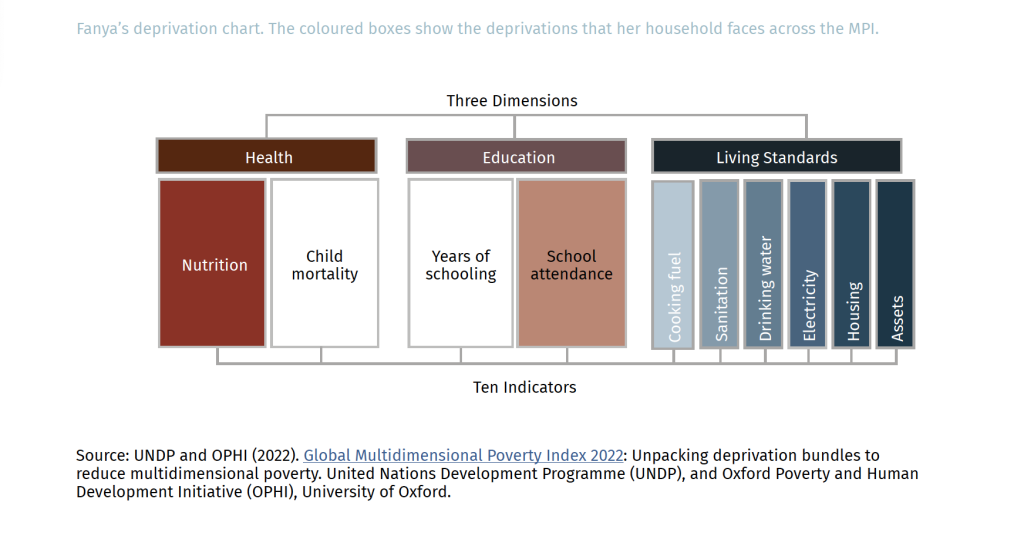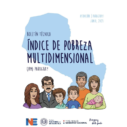
Search
Day in the Life: Fanja from Madagascar

Fanja* is 59 years old and lives in a town of 5,000 people in eastern Madagascar. The town is situated on the outskirts of a forest and national park. The park is globally renowned for its lemur population.
Fanja’s household comprises two sons (ages 39 and 16) and a grandson (age 12). Fanja and her family live in a house with a metallic roof with mud and wattle walls and a beaten earth floor. Due to the dense rainforest surrounding the town, it rains a lot, and the roof leaks. It also gets very cold; for warmth the family huddles around their wood cooking stove in the evenings.
They do not have a toilet and instead use the bushes close to the house. They draw water from one of the abundant natural streams that flow from the forested hills near their home. For lighting they use kerosene lanterns and candles. The house is not connected to electricity, even though the village is connected to the main grid.
Fanja became the head of the family in 2001 after her husband died. She moved in with her sister’s family in 2017 after her own house was destroyed by Tropical Cyclone Ava. She tried to reconstruct the house shortly afterward, but the unfinished structure was destroyed in 2020 during Tropical Storm Chalane.
For work Fanja crushes large rocks into gravel by hand using a mallet–a job she has done daily since she was 25. Crushing gravel starts with carrying rocks from the top of a steep hill near the house. On each trip Fanja carries rocks weighing up to 20 kilograms. This takes about an hour round trip. Fanja used to make five trips a day, but at her current age she manages up to three. Each trip generates roughly one bag of gravel that usually sells for 2,000 ariary (50 cents). However, sometimes Fanja will accept less than 2,000 ariary just to get money to buy food. Fanja would willingly accept less strenuous work but admits her prospects are very low because she never went beyond reading and writing classes in school. Her older son started school but dropped out in the third year of primary education and now works as a night guard in town, where he earns 100,000 ariary ($25) a month plus supper on most nights. He also spends part of his day helping his mother crush rocks.
During their holidays Fanja’s grandson and younger son join her in crushing rocks to raise money for their school fees. Her younger son is currently in the sixth year of primary education at the local public school. Her grandson is in the third year of primary education, but the family has been unable to raise enough money for him to start school again in September.
Given her advancing age, Fanja worries that she may not be able to manage the physicality of gravel making for much longer. Her work does not guarantee secure access to food, and the family plot of land is too small to support their food needs. They often have to share a single ration among them.
Fanja and her family are considered multidimensionally poor because they are deprived in nine indicators, which translates into a deprivation score of 83.3%. Furthermore, they are living in severe multidimensional poverty because their deprivation score is higher than 50%.
* Some details have been changed
This article was published in Dimensions 15

















